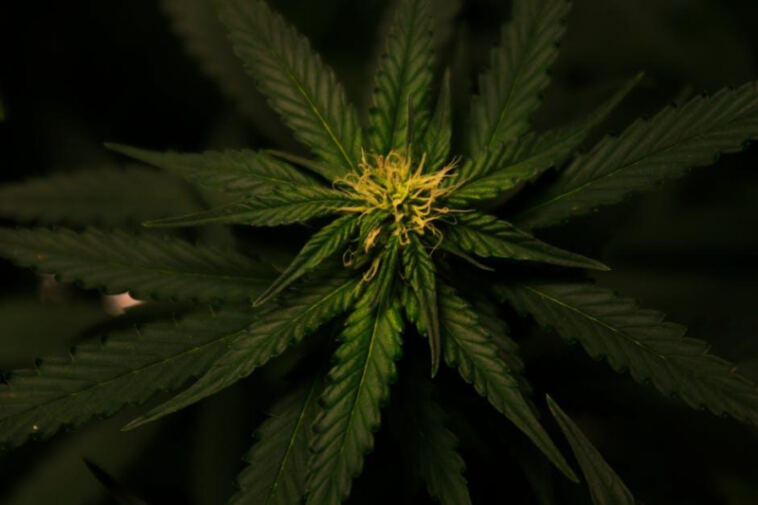- Like
- SHARE
- Digg
- Del
- Tumblr
- VKontakte
- Flattr
- Buffer
- Love This
- Save
- Odnoklassniki
- Meneame
- Blogger
- Amazon
- Yahoo Mail
- Gmail
- AOL
- Newsvine
- HackerNews
- Evernote
- MySpace
- Mail.ru
- Viadeo
- Line
- Comments
- Yummly
- SMS
- Viber
- Telegram
- JOIN
- Skype
- Facebook Messenger
- Kakao
- LiveJournal
- Yammer
- Edgar
- Fintel
- Mix
- Instapaper
- Copy Link
In the realm of mental health treatment, the debate over the efficacy of cannabis versus conventional medications continues to spark curiosity and intrigue. With cannabis gaining traction as a potential alternative therapy for a variety of mental health disorders, comparing its potency to that of traditional medications is a crucial exploration. In this article, we delve into the nuanced world of mental health treatment, examining the strengths and weaknesses of both cannabis and conventional medications in addressing the complex intricacies of mental illness.
Overview of Cannabis as a Mental Health Treatment
When it comes to comparing the potency of cannabis versus conventional mental health medications, there are a few key factors to consider. While both options can be effective in treating various mental health conditions, there are some differences in terms of how they work and their potential side effects.
One of the main advantages of using cannabis as a mental health treatment is its natural origin. Unlike many conventional medications that are synthesized in a lab, cannabis comes from a plant and is minimally processed. This can be appealing to individuals who prefer a more natural approach to their mental health care.
However, it’s important to note that the potency of cannabis can vary widely depending on the strain and method of consumption. In contrast, conventional medications are carefully formulated to deliver a specific dose of medication with each use. This level of precision can make it easier to track progress and manage symptoms over time.
Comparison of Effectiveness between Cannabis and Traditional Medications
When it comes to mental health medications, the debate between cannabis and traditional pharmaceuticals has been ongoing. While both options have their supporters and critics, it’s important to understand the differences in effectiveness between the two.
Cannabis:
- Can provide fast relief for symptoms such as anxiety and depression
- May have fewer side effects compared to conventional medications
- Offers a more natural and holistic approach to mental health treatment
Traditional Medications:
- Often prescribed by healthcare professionals with known efficacy
- May have specific formulations for different mental health conditions
- Can be tailored to individual needs based on severity of symptoms
Considerations for Using Cannabis in Conjunction with Conventional Mental Health Medications
When comparing the potency of cannabis to conventional mental health medications, it is important to consider the effects each may have on the body and mind. Cannabis contains compounds known as cannabinoids, which interact with the body’s endocannabinoid system to produce various effects. On the other hand, conventional mental health medications typically target specific neurotransmitters in the brain to regulate mood and behavior.
Key considerations:
- Cannabis may have different effects on each individual due to factors such as tolerance, dosage, and method of consumption.
- Conventional mental health medications are typically prescribed by a healthcare provider and require careful monitoring to ensure effectiveness and minimize side effects.
- Combining cannabis with conventional medications may result in unforeseen interactions or heightened effects, so it is important to consult with a healthcare professional before making any changes to your treatment regimen.
| Cannabis | Conventional Medications |
|---|---|
| Interacts with endocannabinoid system | Targets specific neurotransmitters |
| Varied effects based on individual factors | Prescribed by healthcare provider |
| Potential for interactions with medications | Require careful monitoring |
Exploring the Potential Side Effects of Cannabis vs Conventional Medications
When it comes to treating mental health conditions, there are various options available, including cannabis and conventional medications. Both types of treatments have their own set of potential side effects that patients should be aware of before making a decision. In this post, we will explore the potency of cannabis compared to conventional mental health medications.
Cannabis Side Effects:
- Increased heart rate
- Impaired memory and concentration
- Dependency and addiction potential
Conventional Medications Side Effects:
- Nausea and vomiting
- Weight gain or loss
- Sexual dysfunction
| Side Effects | Cannabis | Conventional Medications |
|---|---|---|
| Dependency | Yes | No |
| Memory Impairment | Yes | No |
| Sexual Dysfunction | No | Yes |
Recommendations for Patients Considering Cannabis as a Mental Health Treatment
When it comes to comparing the potency of cannabis and conventional mental health medications, it’s important to consider a few key factors. First and foremost, it’s essential to understand that cannabis can vary greatly in potency depending on the strain and method of consumption. Conventional medications, on the other hand, are typically standardized in terms of dosage and potency.
Some patients find that cannabis offers a more natural and holistic approach to managing their mental health symptoms, while others prefer the consistency and predictability of conventional medications. It’s crucial for patients to work closely with their healthcare provider to determine the best treatment plan for their unique needs and preferences.
Ultimately, the decision to use cannabis or conventional medications for mental health treatment should be based on individual factors such as medical history, lifestyle, and personal beliefs. It’s important for patients to weigh the potential benefits and risks of each option before making a decision. Consulting with a qualified healthcare provider is key in navigating this complex decision-making process.
Q&A
Q: What are the key differences between cannabis and conventional mental health medications in terms of potency?
A: Cannabis and conventional mental health medications differ in potency due to the varying mechanisms of action and chemical compounds present in each. While conventional medications are often synthesized in laboratories to target specific neurotransmitters in the brain, cannabis contains a complex mix of cannabinoids that interact with the body’s endocannabinoid system in a more holistic manner.
Q: How do the side effects of cannabis compare to those of conventional mental health medications?
A: The side effects of cannabis tend to be less severe and more manageable than those of conventional medications. While cannabis may cause temporary impairment of cognitive function and short-term memory, it is less likely to result in long-term negative effects on the body or mind. In contrast, conventional medications often come with a range of side effects, including weight gain, sexual dysfunction, and dependency.
Q: Is there evidence to suggest that cannabis is more effective than conventional mental health medications?
A: The effectiveness of cannabis versus conventional medications is still a topic of ongoing debate and research. Some studies have suggested that certain cannabinoids in cannabis may have therapeutic benefits for mental health conditions such as anxiety and depression. However, more rigorous scientific research is needed to determine the comparative efficacy of cannabis versus conventional medications for various mental health disorders.
Q: Are there any potential risks or drawbacks to using cannabis as a mental health treatment?
A: While cannabis may offer some therapeutic benefits for mental health conditions, there are potential risks and drawbacks to consider. These include the risk of addiction or dependency, potential interactions with other medications, and the legal implications of using cannabis in some regions. It is important for individuals to weigh these factors carefully and consult with a healthcare provider before incorporating cannabis into their mental health treatment plan.
Insights and Conclusions
In conclusion, the debate of cannabis versus conventional mental health medications continues to be a topic of discussion. While both have their own unique benefits and drawbacks, it is important for individuals to carefully consider their options and consult with medical professionals before making any decisions. With ongoing research and advancements in the field, the effectiveness and potency of both cannabis and traditional medications may continue to evolve. Ultimately, the most important factor is finding the right treatment plan that works best for each individual’s unique needs and circumstances.


